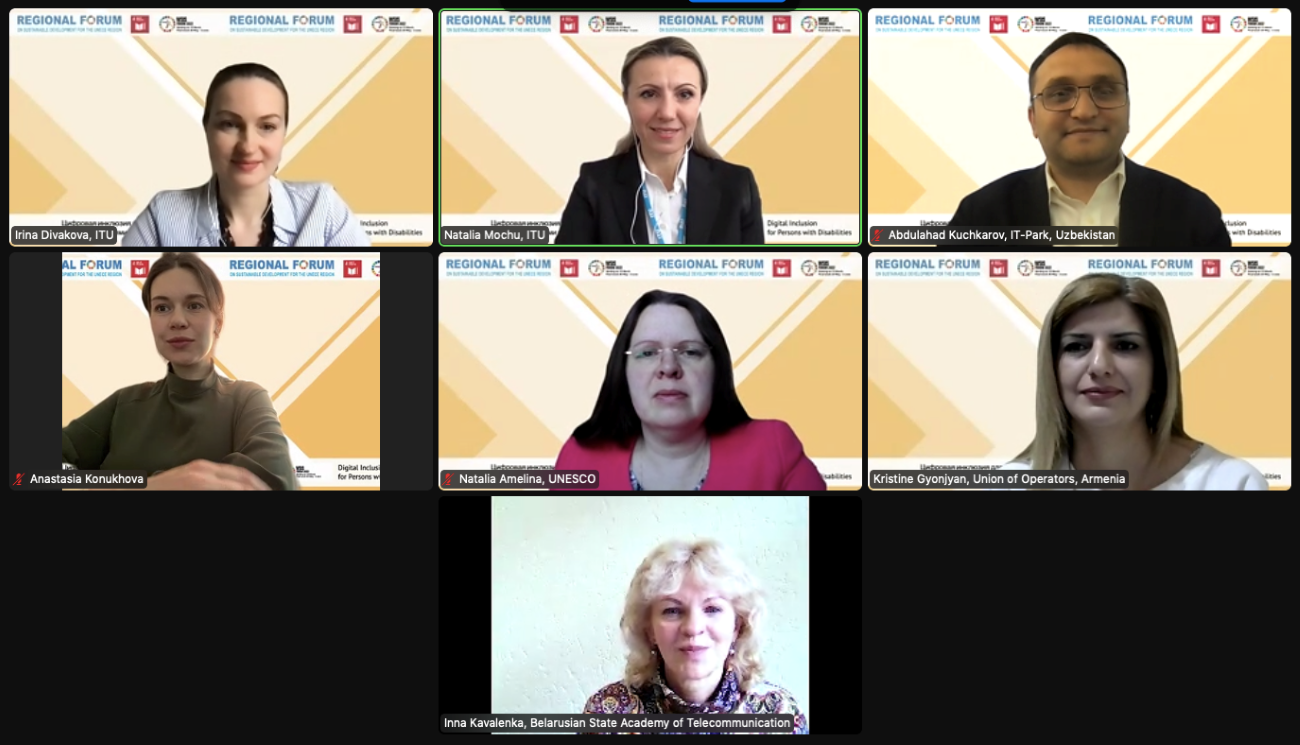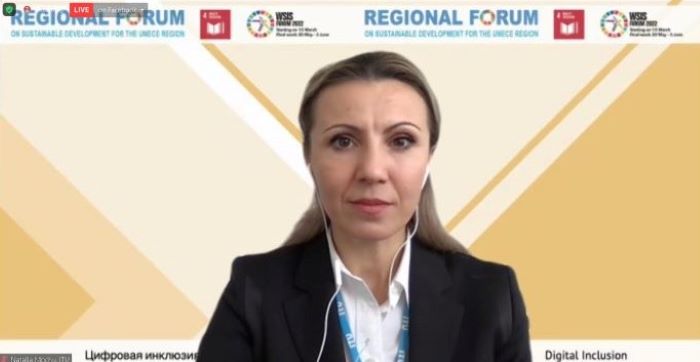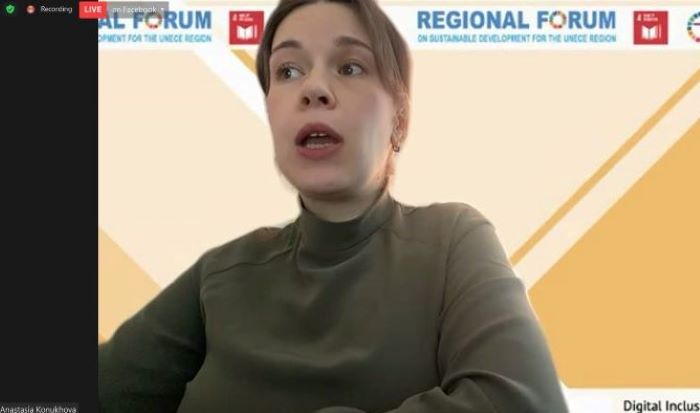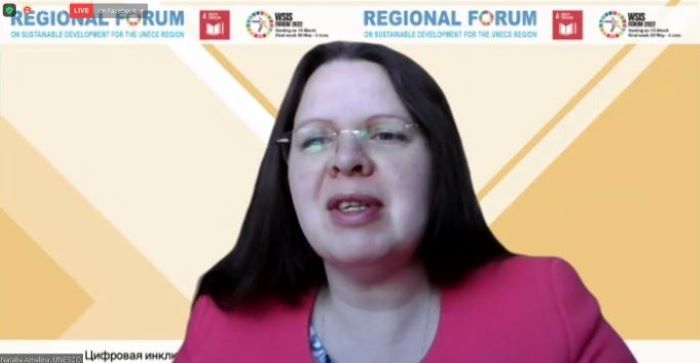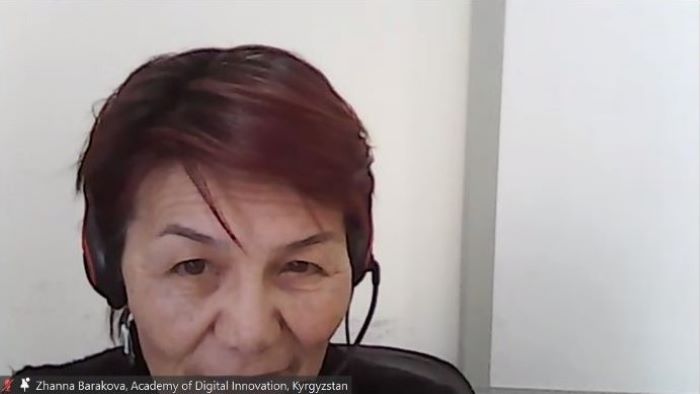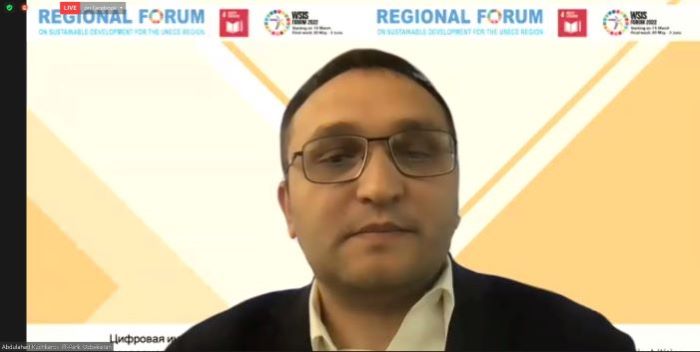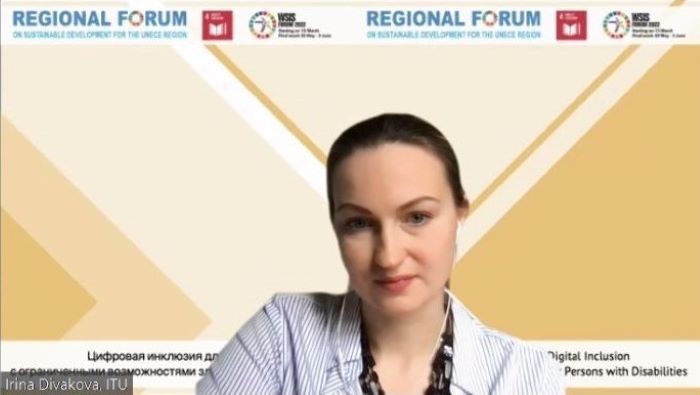Digital Inclusion for Persons with Disabilities
ITU Regional Office (CIS Region)
Session 208
Side Event: UNECE Regional Forum on Sustainable Development
The COVID-19 pandemic exposed the shortcomings and inequalities in the education, and persons with disabilities appeared in the most vulnerable situation. The information society provides persons with disabilities with significant opportunities for lifelong learning and also, through obtaining relevant digital skills (SDG4, target 4.4), for employment. In this context, ICT-accessibility plays a critical role. Strengthening digital skills and practical means to achieve real digital inclusion is set as a priority topic for the UNECE countries at the forthcoming ITU World Telecommunication Development Conference (June 2022).
In 2021, ITU Regional Office for CIS conducted a holistic overview of the ICT accessibility policy and regulatory frameworks in European and Central Asian countries of the CIS region, which serves to provide advice to policy-makers and stakeholders throughout the region in the form of good practices and recommendations to identify and eliminate obstacles and barriers to accessibility, notably to information, communications and other services, including electronic services and emergency services.
The latest UNESCO IITE policy brief on impact of the pandemic on persons with disabilities in education places special emphasis on the feasible approaches, means and solutions to maintain continuity of and achieve authentic inclusion in the education of persons with disabilities through alternative delivery modalities, most notably via open and distance learning.
As digital means are not only a solution to an emergency, but a long-term investment towards inclusion, sustainability and resilience, this event provides a platform for Member States and other stakeholders to discuss challenges, opportunities, and necessary policy actions, as well as practical issues of digital inclusion and educating persons with disabilities in digital skills.
Agenda
timing is expressed in CEST (UTC+2)
08:30 – 08:35 Opening remarks
08:35 – 08:45 ICT accessibility study for CIS region, ITU
08:45 – 08:55 Impact of COVID-19 pandemic on PWD in education, UNESCO IITE
08:55 – 09:40 Interactive panel discussion
Question 1: What are the challenges and what activities you undertake to foster digital skills development for PWD? How do you see it supports eliminating obstacles and barriers to accessibility in education?
Question 2: How the potential of digital technology can further galvanize digital inclusion in the near future?
09:40 – 09:45 Wrap-up


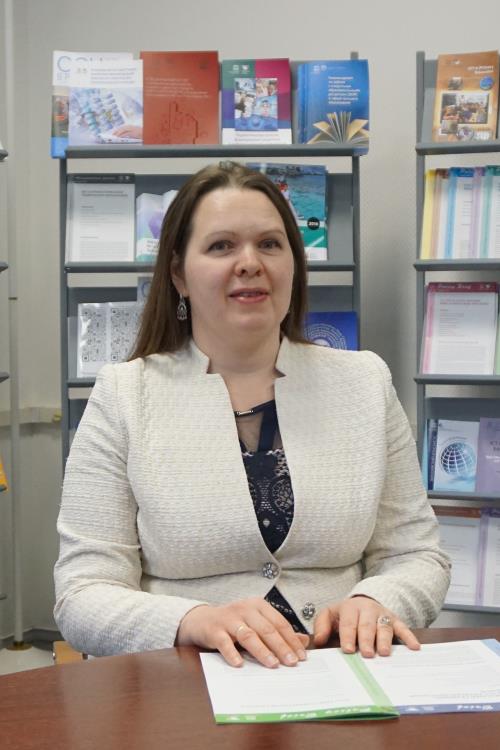


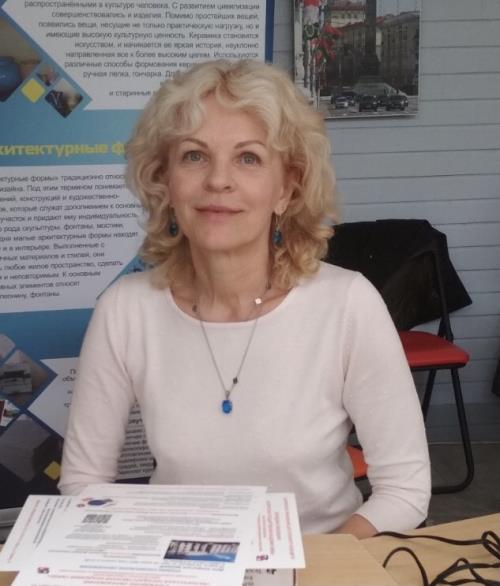


-
 C1. The role of governments and all stakeholders in the promotion of ICTs for development
C1. The role of governments and all stakeholders in the promotion of ICTs for development
-
 C3. Access to information and knowledge
C3. Access to information and knowledge
-
 C4. Capacity building
C4. Capacity building
-
 C6. Enabling environment
C6. Enabling environment
-
 C7. ICT applications: benefits in all aspects of life — E-learning
C7. ICT applications: benefits in all aspects of life — E-learning
-
 C7. ICT applications: benefits in all aspects of life — E-employment
C7. ICT applications: benefits in all aspects of life — E-employment
-
 Goal 1: End poverty in all its forms everywhere
Goal 1: End poverty in all its forms everywhere
-
 Goal 4: Ensure inclusive and equitable quality education and promote lifelong learning opportunities for all
Goal 4: Ensure inclusive and equitable quality education and promote lifelong learning opportunities for all
-
 Goal 9: Build resilient infrastructure, promote sustainable industrialization and foster innovation
Goal 9: Build resilient infrastructure, promote sustainable industrialization and foster innovation
-
 Goal 17: Revitalize the global partnership for sustainable development
Goal 17: Revitalize the global partnership for sustainable development
